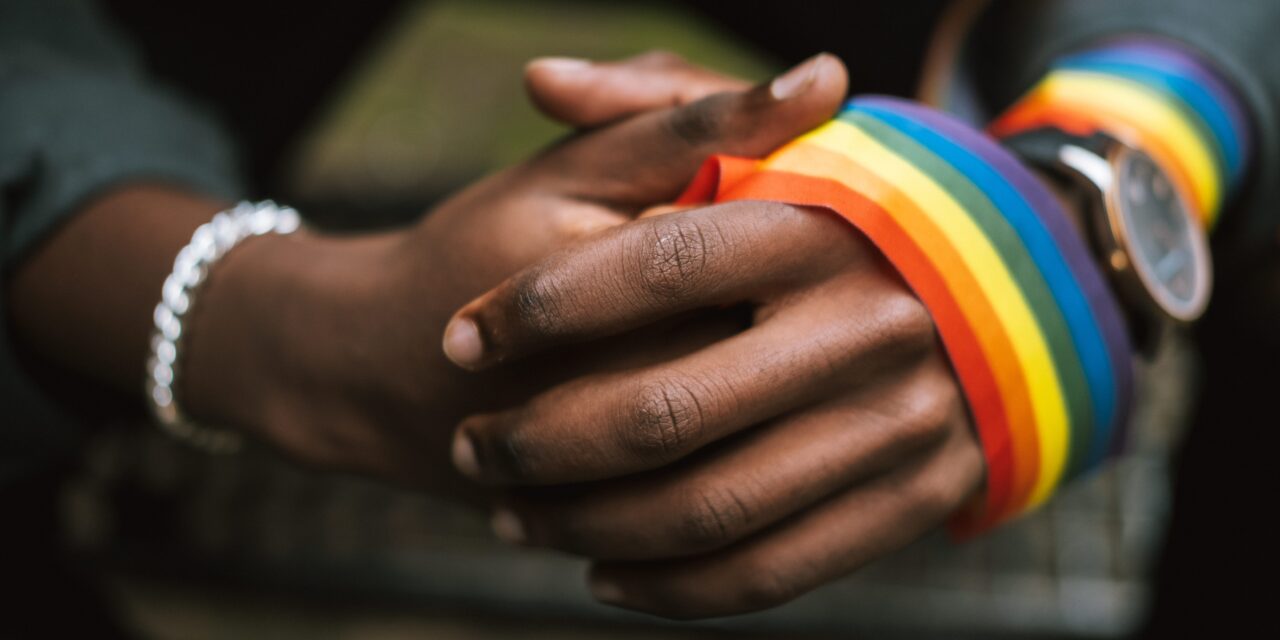Related Podcast Episode: The Importance Of Finding Community For Black Fathers
In the journey towards creating a truly inclusive and accepting society, allyship plays a pivotal role in supporting marginalized communities, including the LGBTQ+ Black community. As we celebrate the intersectionality of identities and experiences within the Black community, it is essential to recognize and embrace the diverse perspectives and voices that shape it. In this blog post, we delve into the significance of allyship and its role in fostering inclusivity, acceptance, and empowerment for LGBTQ+ Black community members. By becoming active allies, we can collectively uplift and support one another, strengthening the bonds of our community and driving positive change.
Understanding Allyship: What It Means
Allyship is an active and ongoing commitment to supporting and advocating for marginalized communities, even when it does not directly affect one’s personal identity or experience. An ally actively seeks to understand the challenges faced by others, confronts their own biases, and uses their privilege to uplift and amplify marginalized voices.
In the context of the LGBTQ+ Black community, allyship involves acknowledging and affirming the unique struggles faced by LGBTQ+ individuals within the Black community. It requires actively working to dismantle systemic barriers and stereotypes, creating safe spaces for open dialogue, and promoting equality for all.
Intersectionality Matters: Embracing the Complexity of Identity
The concept of intersectionality is crucial in understanding the multifaceted experiences of LGBTQ+ Black community members. Intersectionality recognizes that individuals hold multiple identities that interact and influence their lived experiences.
LGBTQ+ Black individuals may face distinct challenges at the intersection of their racial and sexual or gender identities. For instance, LGBTQ+ Black women may encounter specific forms of discrimination that differ from those faced by LGBTQ+ Black men. Acknowledging and honoring these complexities is fundamental in providing meaningful allyship and fostering inclusivity within the community.
Creating Safe and Affirming Spaces
As allies, it is essential to actively create safe and affirming spaces within the Black community for LGBTQ+ individuals to express themselves authentically. These spaces can be physical, such as community centers or events, or digital, like online support groups and social media platforms.
By fostering these safe spaces, allies demonstrate their commitment to embracing diversity and promoting an environment where LGBTQ+ Black community members feel seen, heard, and valued.
Amplifying LGBTQ+ Black Voices
One of the most significant roles allies play is amplifying the voices of LGBTQ+ Black community members. This can be achieved by actively listening to their experiences, advocating for their rights, and using platforms and influence to elevate their stories.
By amplifying these voices, allies work to challenge harmful stereotypes, promote understanding, and create broader visibility for LGBTQ+ Black individuals, ensuring their narratives are an integral part of the community’s collective story.
Educating Ourselves: Confronting Biases and Stereotypes
Allyship requires ongoing education and self-reflection to confront personal biases and unlearn harmful stereotypes. Allies must actively engage in educating themselves about the unique challenges faced by LGBTQ+ Black community members and the historical context of discrimination they have endured.
By continuously seeking knowledge and understanding, allies can better support and empathize with the experiences of LGBTQ+ individuals within the Black community and act as effective advocates for change.
Supporting LGBTQ+ Black Youth
Supporting LGBTQ+ Black youth is critical in fostering inclusivity and empowerment within the community. Young individuals may face heightened challenges as they navigate their identities and seek acceptance from their families and peers.
Allies can support LGBTQ+ Black youth by creating mentorship programs, providing resources for mental health and well-being, and promoting an inclusive and affirming educational environment. These efforts are essential in nurturing the next generation of LGBTQ+ Black leaders and ensuring their voices are valued and respected.
Advocacy and Activism: Allies for Equality
Effective allyship extends beyond individual actions and includes collective advocacy and activism. Allies can stand in solidarity with LGBTQ+ Black community members in demanding equal rights, access to healthcare, employment opportunities, and protection from discrimination.
By engaging in activism, allies work hand in hand with the LGBTQ+ Black community to create systemic change and dismantle barriers to equality.
Conclusion
Fostering inclusivity within the Black community requires a collective effort to understand, support, and uplift all its members, including LGBTQ+ individuals. Allyship plays a vital role in creating a safe, accepting, and empowering environment for LGBTQ+ Black community members, promoting acceptance, and celebrating the richness of diversity within our community.
As we work towards a more inclusive and equitable future, let us embrace the transformative power of allyship and strive to build a community where every voice is valued, every identity is celebrated, and every individual can thrive authentically and unapologetically. Together, we can create a world where LGBTQ+ Black community members are seen, heard, and loved for exactly who they are.












